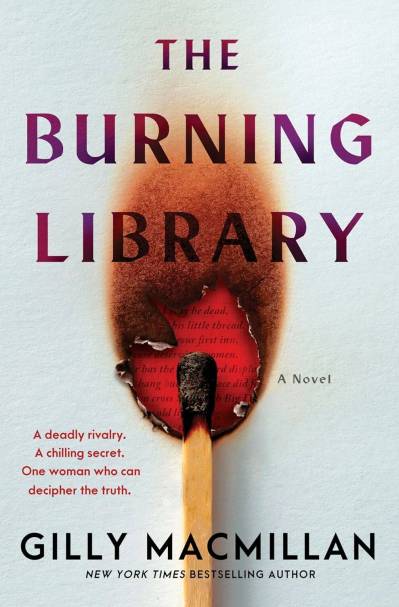Books
Toronto therapist offers insightful tips for tackling trauma, stress and more
3 minute read Saturday, Jan. 17, 2026In a crisis, some people successfully use stress management techniques or other tactics to deal with their problems, while others might fall apart, lacking the tools that they need to help them cope.
In Something to Hold Onto, Kate Robson describes some of the practices readers can use to help them get through difficult times. Reading this book and putting the techniques into practice can help people find the resources they need to deal with the stresses that they encounter — either individually or as a family.
Robson is a registered psychotherapist who has worked for over 10 years with parents of newborns at the Neonatal Intensive Care Unit (NICU) in Toronto as a family support specialist. She has led workshops and conferences in Canada and around the world, and oversees the largest NICU support network in Canada while also leading a weekly support group for parents and caregivers.
For Robson, visualization is key to understanding and getting through trauma. Her book includes various ideas that might help readers to release tension and lessen trauma as they imagine anything from an old trunk or a stable full of horses to a mountain or a garden to help them identify and understand their emotions. In each chapter, the author introduces the image and explains how readers can use the idea to help get them through their pain.
Advertisement
Weather
Winnipeg MB
-16°C, Snow
Hotel a hub for chronicling the lives of Afghans through various regimes, conflicts
5 minute read Preview Saturday, Jan. 17, 2026Saskatchewan-born Karen Solie wins T.S. Eliot Poetry Prize
1 minute read Updated: Yesterday at 1:30 PM CSTSaskatchewan-born poet Karen Solie has won the prestigious T.S. Eliot Poetry Prize for her collection "Wellwater."
Solie was announced as the winner of the U.K. award at a ceremony in London on Monday night.
The judges praise her collection for balancing the beauty and horrors of the world, "with an ironic humour that plays over our increasingly euphemism-hungry culture."
The prize is worth 25,000 pounds, or roughly C$45,000.
Indie booksellers chosen to jury 2026 Giller Prize
4 minute read Saturday, Jan. 17, 2026The jury for the Giller Prize will look a little different this year — it will be devoid of authors.
Organizers of the prize announced on Jan. 12 that rather than choosing writers as jurors for the $100,000 prize, a seven-person jury will be made up of independent booksellers from provinces and territories across the country — including Manitoba.
McNally Robinson Booksellers co-owner Chris Hall is among the seven jurors representing bookstores in Toronto, Atlantic Canada, Northwest Territories and B.C.
Jurors will sift through dozens of submissions, with the long list revealed in September, the short list announced in October and the winner crowned in November. The 2025 winner was Souvankham Thammavongsa for her novel Pick a Colour.
Irving’s New England return feels like disjointed parody
4 minute read Preview Saturday, Jan. 17, 2026Author Rachel Reid on what the next ‘Heated Rivalry’ book will be about and tuning out the mania
4 minute read Preview Thursday, Jan. 15, 2026Rachel Reid to publish another book in ‘Heated Rivalry’ universe
1 minute read Preview Monday, Jan. 12, 2026On the night table: Shashi Bhat
1 minute read Preview Saturday, Jan. 17, 2026New in paper
1 minute read Preview Saturday, Jan. 17, 2026Committed, conniving housewife will stop at nothing to climb the social ladder
5 minute read Preview Saturday, Jan. 17, 2026Wartime rescue mission movingly recalled
3 minute read Preview Saturday, Jan. 17, 2026Giller Prize shakes up jury with indie bookstore staffers as it seeks new sponsors
2 minute read Preview Monday, Jan. 12, 2026Solitary fox finds estranged old friend
4 minute read Saturday, Jan. 17, 2026Friends might fight, but that doesn’t mean they should remain estranged.
Fox lives a perfect but solitary life in the forest in Fox and the Mystery Letter (Frances Lincoln Children’s Books, 40 pages, hardcover, $24), written and illustrated by Toronto’s Alex G. Griffiths. One day, he receives a puzzling letter that leads him on a treasure hunt, where his long-ago friend is waiting to pick up the pieces of their fractured relationship.
A sweetly-told story, Griffith’s drawings have a sense of humour that will draw in children from ages 4-6, teaching them lessons they may apply in their own lives one day.
● ● ●
Feuding factions seek clues from mysterious manuscript
4 minute read Preview Saturday, Jan. 10, 2026Apatow’s literary scrapbook a treasure trove of Hollywood ephemera
3 minute read Preview Saturday, Jan. 10, 2026Book club gets wild with fantastical fiction
3 minute read Preview Saturday, Jan. 10, 2026LOAD MORE














